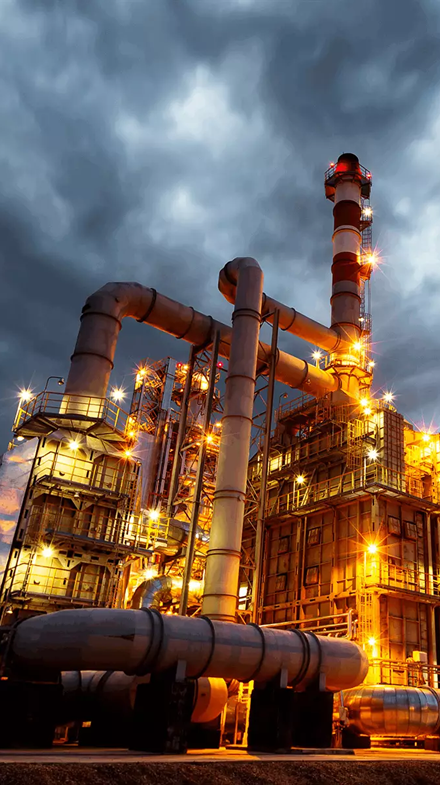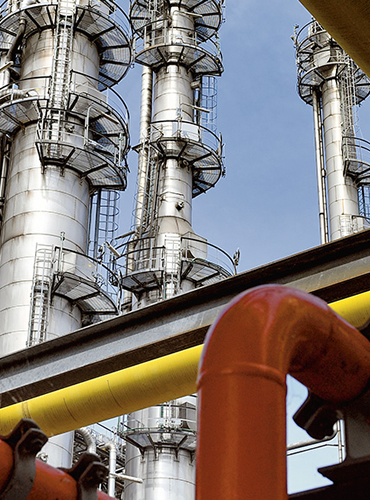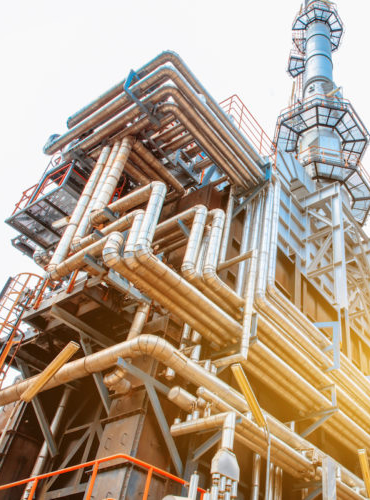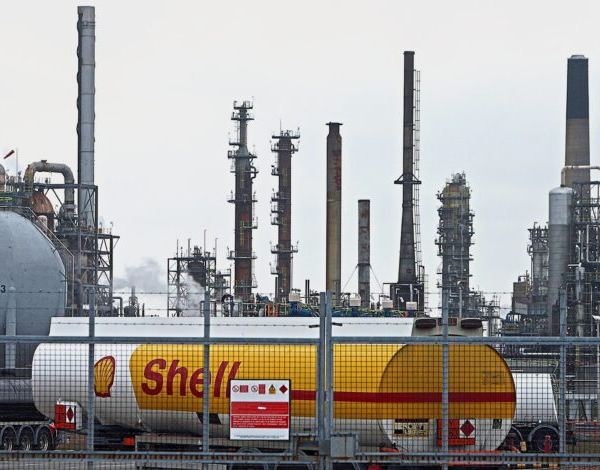An oil refinery is an industrial plant that transforms, or refines crude oil into various usable petroleum products such as diesel, gasoline, and heating oils like kerosene. Oil refineries essentially serve as the second stage in the crude oil production process following the actual extraction of crude oil up-stream, and refinery services are considered to be a down-stream segment of the oil and gas industry.
Please fill out the form below and we will get back to you as soon as possible.
- Mon-Fri 8:00 am-6:00 pm
- info@shellepmiddleeastholding.com
- Carel Van Bylandtlaan 30, 2596, 'S-Gravenhage
About Shell EP
Middle East Holding

20
Years ofexpericence
PROVIDES HIGH SERVICES SOLUTION WORLDWIDE.
The Shell EP Middle East Holding is an oil field located in Mangystau Region, Kazakhstan which was discovered in 1961. We are a highly developed rapidly growing oil & gas exploration, production and distributing entity with a robust portfolio of customers, and highly rated production and distributing capacities.
With a solid 63+ years of operational experience, Shell EP Middle East Holdinghas always projected to stand out in an efficient ways when exploring, producing/refining and distributing oil and gas products to both local and international markets, utilizing a modern state of the art new age technological infrastructural mechanism in all our operational services just to meet the global growing demands for oil and gas energy products.
In order to ensure or solidify our steady growth, development and strengthening of our company's enviable positions in the world stage, we have vehemently successfully implemented and developed programs to stabilize and expand the volumes of our commercial oil and gas production and distribution.
- Clean energy for a bright future
- Sustainable development
- Improving access to energy
Shell EP Middle East Holding is committed to powering progress by providing cutting-edge, sustainable energy solutions to meet the evolving needs of our global community.
Shell EP Middle East Holding is a stable and rapidly growing oil and gas company with strategic importance and vast history with unique experience in foreign economic activities that acts in the interests of her prospective clients and stakeholders. The prior targeted mission of the Refinery is focused on a stable execution of high-scale oil and gas projects all over the world to gain economic benefit for the Country. Technical development and strengthening of global economic relations of Kazakhstan, mutual strengthening of geopolitical positions of Kazakhstan on the global market. In accordance with the Corporate development strategy approved by the Board of Directors of Shell EP Middle East Holding Refinery, by 2025 the company shall become a major high technology holding in the Kazakhstan Fuel and Energy Industry with developed capacities in the area of hydrocarbons production, including offshore, petrochemical refining, provision of services and trading, and also possess significant potential in the innovational and technological aspects.
- Clean energy for a bright future
- Sustainable development
- Improving access to energy
Shell EP Middle East Holding is the undisputed leader of its industry in terms of processing efficiency. Its processing depth is above 90%, while more than 71% of light petroleum products are produced in Euro-5 ecological class. Natural gas is sold to consumers in the Republic of Kazakhstan and on international market as LNG, aviation kerosene JP54 / A1, diesel D2 / D6, mazut M100 and other crude oil products. The company sells natural gas to customers in the Kazakhstan Republic and on the global market as Liquefied Natural Gas (LNG), Jet Fuel JP54/A1, Diesel D2/D6, M100 Mazut and other petroleum commoditie
Our vision is to be a pioneering force in the energy industry, driving innovation and setting new standards for environmental responsibility.
Shell EP Middle East Holding adopts a forward-thinking approach, combining advanced technology with customized solutions to ensure efficiency, flexibility, and unparalleled value for our clients.
- Clean energy for a bright future
- Sustainable development
- Improving access to energy
Countries Covered
Workforce
Production Center
5 Star Rating
History Timeline
New ideas and directions
Shell started the 1960s by strengthening its presence in the Middle East, discovering oil in Yibal, Oman’s most prolific field. This discovery was the country’s first and would go on to transform Oman’s economy. The Groningen gas field in the Netherlands was also discovered at the start of the decade, followed by the discovery of gas in the North Sea. This time was also a golden period of research by Shell Chemicals and the company also took the decision to internationalise, placing local people in top positions to make the most of homegrown talent in each country.
The closure of the Suez Canal in 1967 for eight years confirmed the wisdom of Shell’s decision to invest in super tankers. At the same time, Shell was a partner in the first sea transportation of liquefied natural gas (LNG) in 1964 – from the Algeria to the UK – opening up a whole new market for the business.
Instability in the Middle East at the end of the 1960s and the start of the 1970s led to a quadrupling of oil prices and meant that the era of cheap energy came to an end. In response, Shell began to diversify, in particular into coal, nuclear power and metals. Shell also began to look beyond the traditional oil-producing countries for supplies and stepped up exploration in the North Sea and in the USA.
Learn More

Record-breaking innovations and new partnerships
In 2005, the Royal Dutch Shell Group underwent a major structural reorganisation as the nearly century-old partnership between Royal Dutch Petroleum and Shell Transport and Trading was dissolved and Shell unified its corporate structure under a single new holding company, Royal Dutch Shell plc.
Shell’s innovation has continued at pace into the 21st Century. In 2012, the company completed Pearl GTL, in Qatar, the world’s largest source of GTL products. In 2016, production started at Shell’s Stones field, the world’s deepest oil and gas project. And in 2017, Prelude, the world’s biggest floating liquefied natural gas facility, sailed 5,800 kilometres from a shipyard in South Korea to its new home in Western Australia.
The company has also continued to expand. In 2015, Shell announced that it would be buying BG Group, a UK oil and gas production company. The acquisition was completed in February 2016, expanding the company’s oil and gas portfolio. And in 2016, Shell created its New Energies business to focus on exploring and developing commercial opportunities in renewable energy, such as wind and solar..
Learn MoreWhat People’s Say
“Blandit aliquet varius id malesuada nunc euismod id tempor malesuada sollicitudin sit nisi tellus auctor vitae dignissim lacinia convallis dictum.”
“Blandit aliquet varius id malesuada nunc euismod id tempor malesuada sollicitudin sit nisi tellus auctor vitae dignissim lacinia convallis dictum.”
“Blandit aliquet varius id malesuada nunc euismod id tempor malesuada sollicitudin sit nisi tellus auctor vitae dignissim lacinia convallis dictum.”
“Blandit aliquet varius id malesuada nunc euismod id tempor malesuada sollicitudin sit nisi tellus auctor vitae dignissim lacinia convallis dictum.”
“Blandit aliquet varius id malesuada nunc euismod id tempor malesuada sollicitudin sit nisi tellus auctor vitae dignissim lacinia convallis dictum.”
“Blandit aliquet varius id malesuada nunc euismod id tempor malesuada sollicitudin sit nisi tellus auctor vitae dignissim lacinia convallis dictum.”
“Blandit aliquet varius id malesuada nunc euismod id tempor malesuada sollicitudin sit nisi tellus auctor vitae dignissim lacinia convallis dictum.”
Code of conduct and ethics

Shell EP Middle East Holding has and will always maintain a positive working environment for our staff from all departments of the company that is fair, efficacious, and beneficial. Our company’s reputation was built by mutual respect and well-behaved personnel with integrity.
- Market Analysis: Ensure a thorough understanding of global oil and gas markets, including demand, regulations, and competition in each region.
- Regulatory Compliance: Comply with international regulations and standards governing the oil and gas industry in each country of operation.
- Risk Management: Identify and mitigate geopolitical, economic, and operational risks associated with international expansion

We believe that humanity can solve any challenge. That our greatest resource is our people. And that responsibility, trust and integrity will help us drive a prosperous future.
Sustainability Goals
Shell EP Middle East Holding implements the"Sustainability" concept in all activities. The company realizes that its role is not restricted to Oil Refining & Gas Processing, but is extended to include main fields of Social, Economic, Environmental & Governance. Hence, the company makes major contributions to the society in which it works within.
It also ensures the safety and welfare of all employees and society while maintaining the environment. The “Sustainability Report,” issued by Shell EP Middle East Holding every other year, is verified by an international 3rd party.
- Safety and Environment
- Emergency preparedness and Response
- Community Impact

Love To Hear From You Get In Touch!
Frequently Asked Questions
Shell's award-winning digital stories channel. Our team of writers and reporters offer fresh insights into energy, technology and the people and ideas powering our lives.
-
What Is Shell EP Middle East Holding Oil Refinery?
-
How Much Crude Oil Does It Take to Make a Gallon of Gasoline?
One barrel of oil (42 gallons) produces 19 to 20 gallons of gasoline and 11 to 12 gallons of diesel fuel
-
Oil Refinery Safety?
Oil refineries can be dangerous places to work at times. For example, in 2005 there was an accident at BP's Texas City oil refinery. According to the U.S. Chemical Safety Board, a series of explosions occurred during the restarting of a hydrocarbon isomerization unit. Fifteen workers were killed and 180 others were injured. The explosions occurred when a distillation tower flooded with hydrocarbons and was over-pressurized, causing a geyser-like release from the vent stack.





